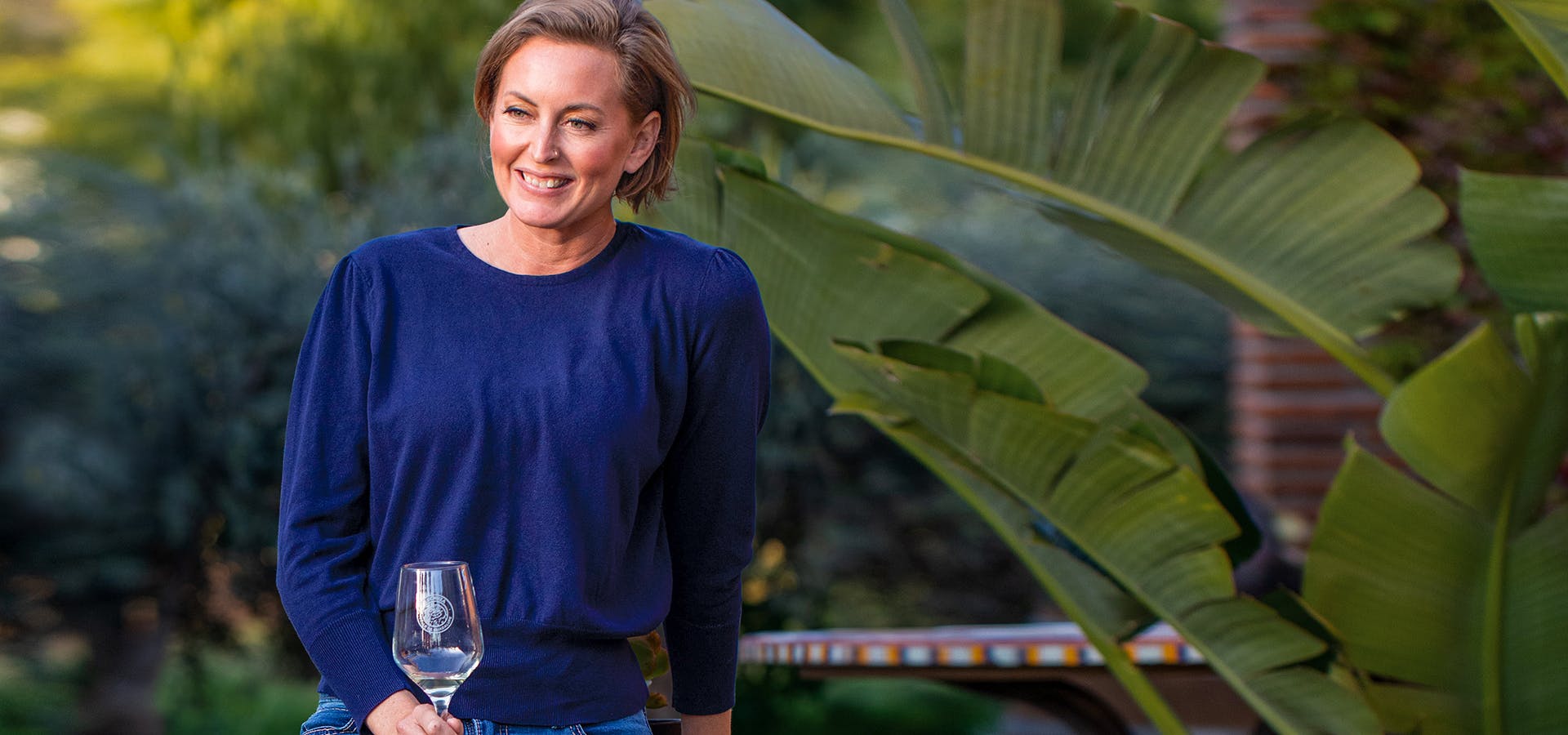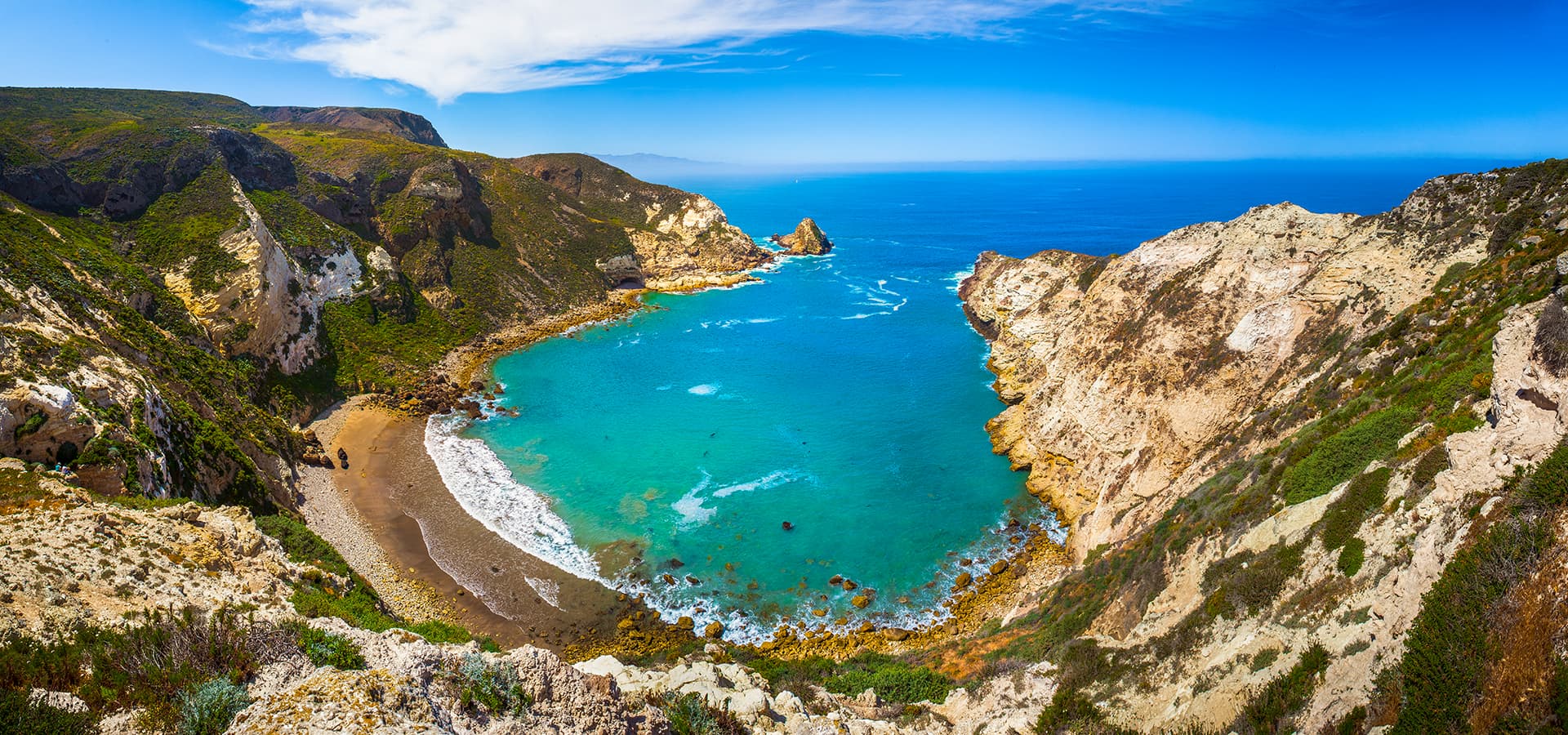Few industries appeal to career-changers as much as wine. The bucolic vineyard lifestyle, a simpler agrarian rhythm of seasonality … for many, the switch represents a retirement strategy or an escape from quotidian, indoor careers that don’t inspire. For a lot of restless Californians, that dream has led to places like Napa, Sonoma or Santa Barbara. For Ray and Patty Magnussen, that yearning sent them further south—all the way to Mexico.
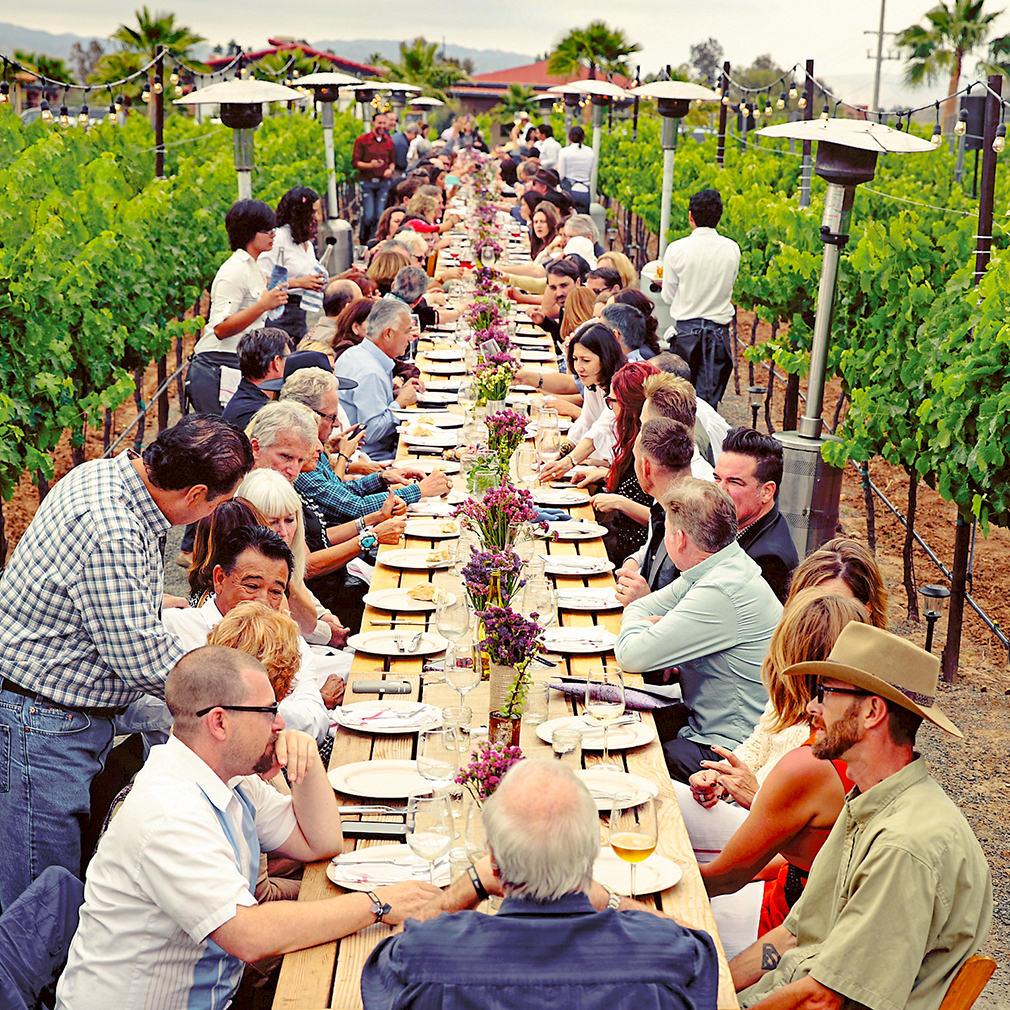
For years, the Valle de Guadalupe in the Baja Peninsula has been a sacred little secret among industry insiders. Because Mexico conjures associations with tequila or mezcal in lieu of vinifera grapes, this region has remained somewhat unknown and undervalued despite the world-class wines it produces. Located about 70 miles southeast of the Tijuana and San Diego border crossing and founded by Dominican missionaries in 1834, the Valle community features all the perquisites for fine-wine growing: a moderate, Mediterranean climate with diurnal shifts for ripening grapes, cool Pacific breezes to preserve acidity and a variety of grape-friendly soils that can support a variety of cultivars.
A fortuitous bike ride in 2002 led the Magnussens from Ensenada to the Valle, where they stumbled across restaurant Laja, then called the French Laundry of Baja. Excited by the dynamic cuisine and accessibility of the area, the Magnussens partnered with local winemaker Cuauhtémoc Santana and Lechuza Wines was born.
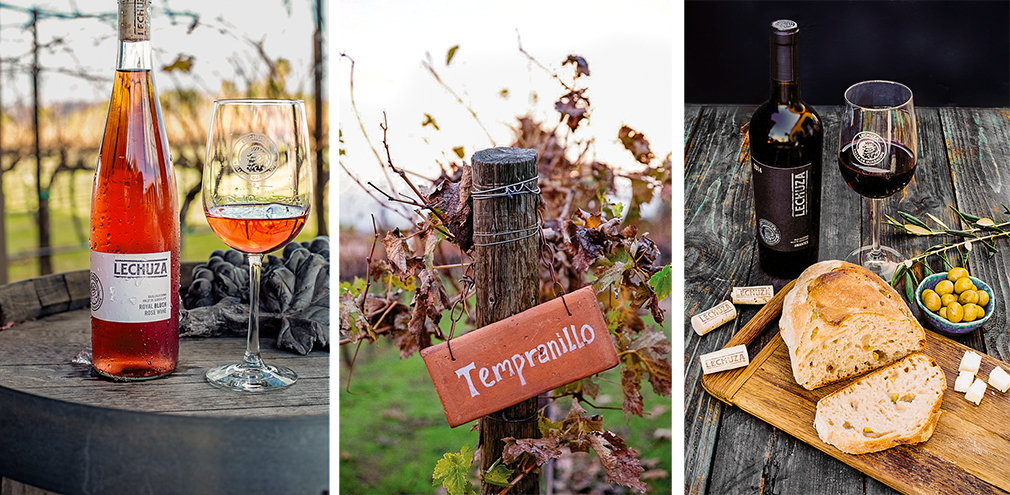
In contrast to many career-changers, Ray enrolled in the prestigious UC Davis program for enology and viticulture. Instead of merely buying an existing brand or property, Ray took the time to train in both grape-growing and winemaking. That commitment has resulted in a more holistic and authentic winery.
The Magnussens’ friendship with experienced growers like the Santana family provided historicity to the Lechuza plantings that has resulted in premium grape material. In full circle now, the French Laundry of the north—way up in Yountville—currently features Lechuza’s wines on its list.
Ray initially planted four key varieties in 2005: cabernet, nebbiolo, merlot and tempranillo. If you understand grape-growing, this quartet makes more sense than its diverse origins might suggest. Cab and merlot are ancestral to Bordeaux and now dominate sunny Napa, whereas nebbiolo is Piemonte’s most noble if maddening Italian red. Tempranillo reigns in Spain and Portugal.
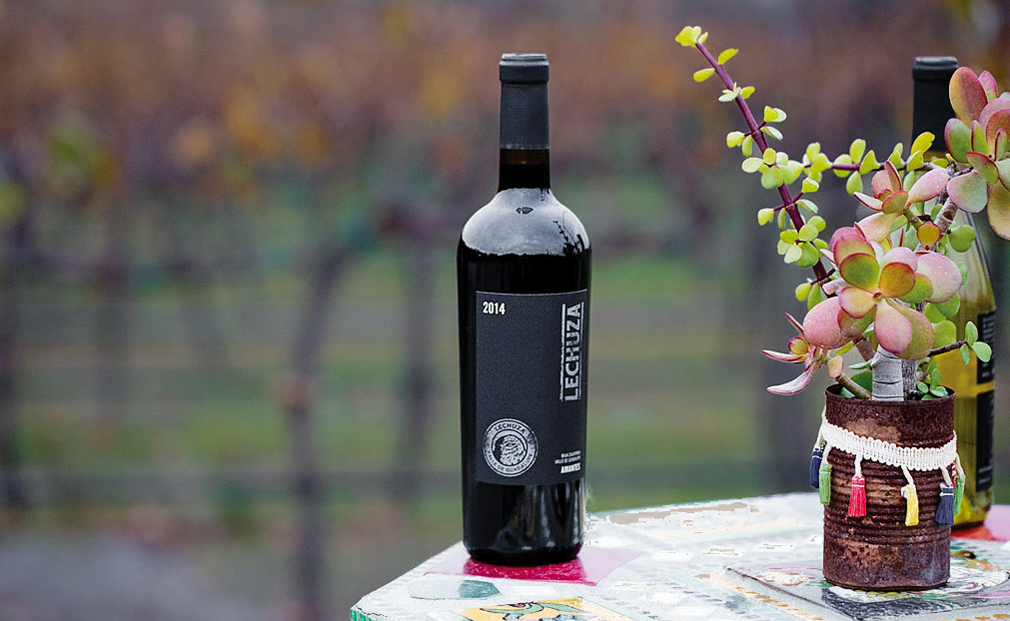
Each of these varieties ripens at a different point in the growing season, which makes for smart labor management in the vineyard. Each produces wines that can shine as stand-alone bottles or can be blended in ways that allow the grapes to complement and compensate each other in challenging vintages. This is a smart bet to maximize your SKUs and potential harvest in any given year.
Building a successful winery is about more than growing quality grapes, though, and it’s here the Magnussens’ daughter, Kristin Shute, enters the picture. Kristin received her culinary training in Santa Barbara and gained hospitality experience at various venues, including a dude ranch where she met husband Adam Shute, a traveling cowboy. Kristin joined the family business in 2012, relocating south from California.
In the 10 years since, she has worked tirelessly to integrate hospitality experiences into the Lechuza brand. “I really loved the community feel,” she shares. “North of the border, there was a complete disconnect from my neighbors. When arriving to the Valle, I found a sense of belonging.”
Some wineries grudgingly open tiny, spartan tasting rooms, while others open massive gift shops with kitschy décor and tchotchkes that don’t quite compensate for the caliber of the wines. What Kristin and her team at Lechuza have done is create not just a welcoming vibe but a full suite of culinary experiences that invite guests out to the vineyard and into the heart of the community.

“One of the most challenging aspects was recalibrating my expectations,” Kristin says. “Finding ingredients to recipes that were not seasonal proved to be a personal mission. However, I changed my perspective and started a more farm-to-table approach. As a former culinary graduate, this was a challenge I embraced.”
Because the production of Lechuza is tiny—just 2,500 cases of six distinct wines—where and when they are showcased is very important. The best way to experience Lechuza is to get there. From an intimate, five-course “By the Barrels” dinner inside the winery to a festive “Among the Vines” party of up to 75 people, Lechuza invites you to experience its wines on-site such that you can walk the vineyard rows under the Baja moon or thief a barrel sample as a wine makes its way to the bottle.
This is one of the best ways to understand what the French call terroir—that ephemeral idea that one can taste the place of origin in a glass of wine. The general consensus among writers and sommeliers is that Lechuza offers an authentic Mexican terroir that promises to inspire a new wave of aspiring winemakers.
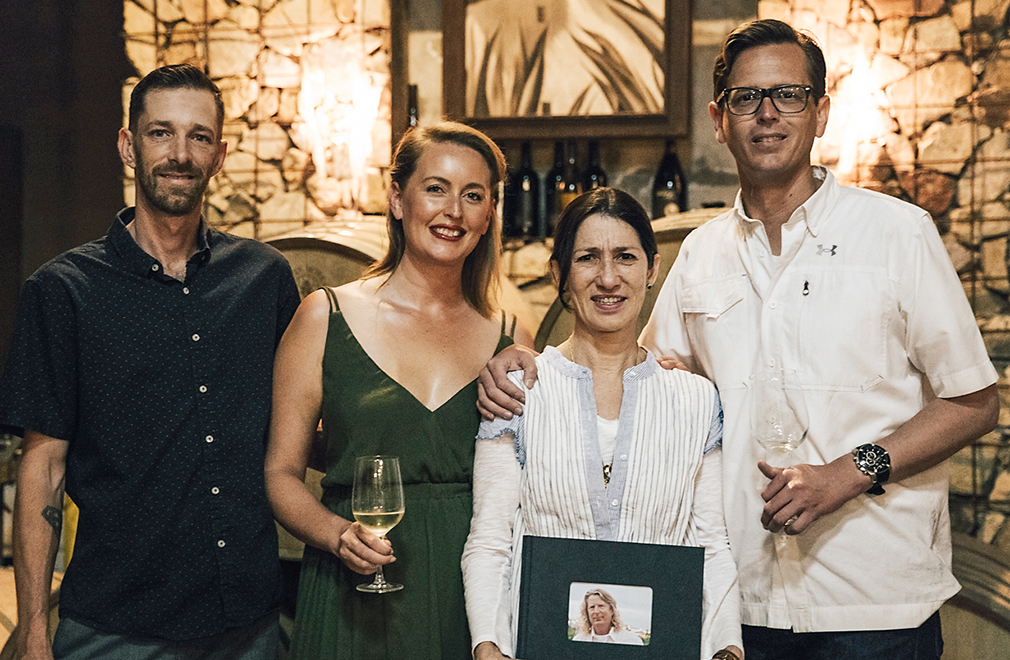
“We have a great opportunity to work with grapes from all over the region,” says Kristin. “Each lot that we either grow or source from has different microclimates, soil composition and water tables. By sourcing from different locations, we are able to fine-balance the final product. For example, I harvest two different sauvignon blanc lots: one being sandy loam soil with greener qualities and the other being red clay with more tropical notes. By blending the two, stylistically, we accomplished a final product that lends itself to our fresh seafood abundantly available to our region.”
As you’re planning your road trip south, consider ordering a few bottles to whet your palate. Lechuza wines are available in California via LMA Wines (lmawines.com).
The 2019 Vuelo white is a somewhat unusual blend of sauvignon blanc and chardonnay that offers refreshing notes of citrus zest and guava, while the flagship nebbiolo is undoubtedly one of the best to be had outside Italy. Because nebbiolo is such a tricky grape to grow, Lechuza’s success with the variety is indicative of its long-term commitment to the area and its willingness to invest in world-class wines that can hold their own against international competitors.
Come for a Baja vacation; stay for the food and wine. Lechuza will soon have you dreaming of your own second act.





